Republican presidential hopefuls face a crowded field in the battle to reach the White House
Out of America: The race to be the GOP's 2016 candidate has begun. Its winner will need broad appeal, stamina - and buckets of money

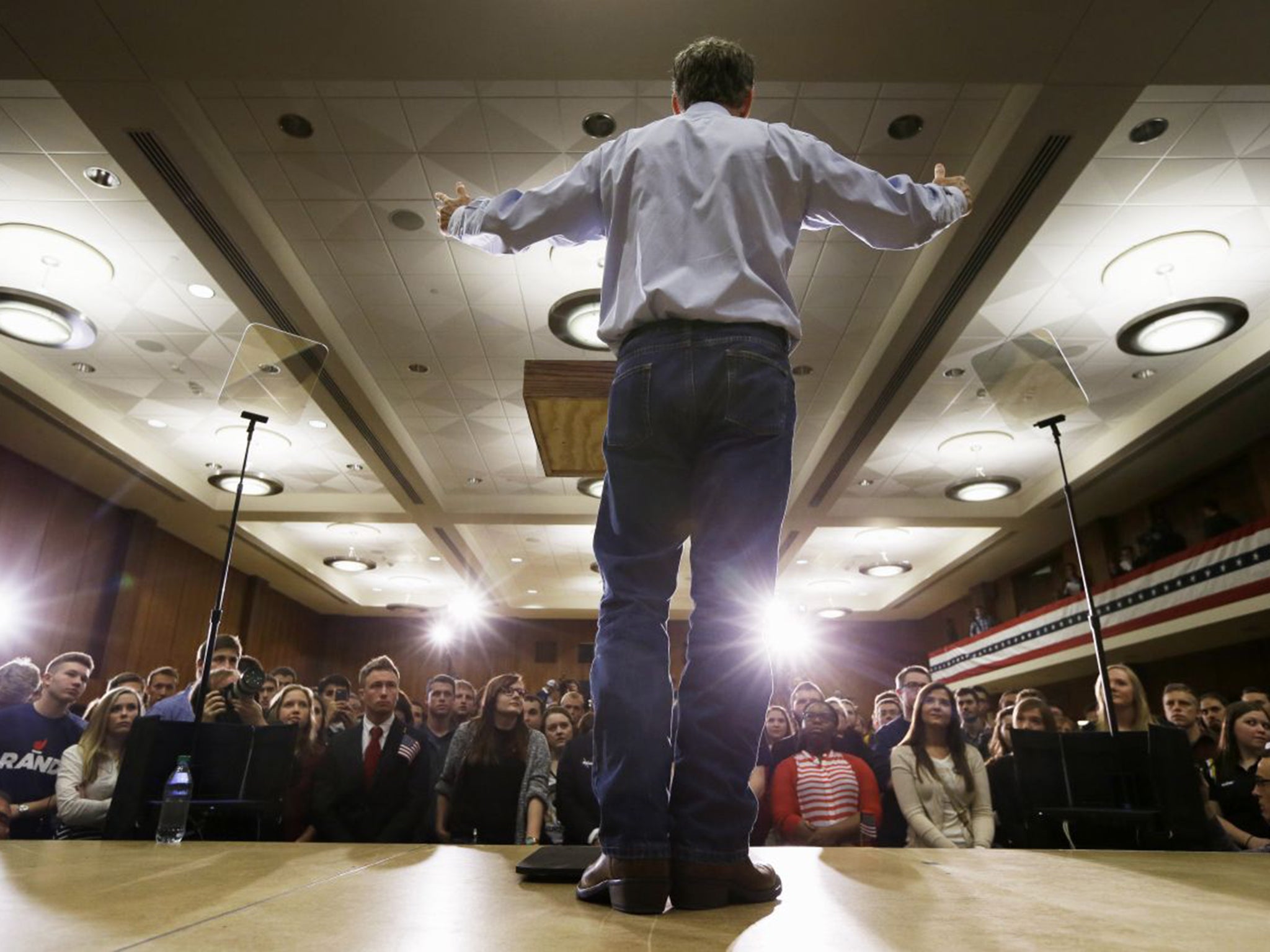
Your support helps us to tell the story
From reproductive rights to climate change to Big Tech, The Independent is on the ground when the story is developing. Whether it's investigating the financials of Elon Musk's pro-Trump PAC or producing our latest documentary, 'The A Word', which shines a light on the American women fighting for reproductive rights, we know how important it is to parse out the facts from the messaging.
At such a critical moment in US history, we need reporters on the ground. Your donation allows us to keep sending journalists to speak to both sides of the story.
The Independent is trusted by Americans across the entire political spectrum. And unlike many other quality news outlets, we choose not to lock Americans out of our reporting and analysis with paywalls. We believe quality journalism should be available to everyone, paid for by those who can afford it.
Your support makes all the difference.Two are already in, but how many more will follow? Right now it’s first-term Republican senators who are making the running in the GOP 2016 presidential stakes – inspired perhaps (though they would never admit it) by Barack Obama’s feat in making it from next-to-nowhere to the White House in the space of only four years.
The Texas firebrand Ted Cruz was the first Republican to make it official that he was seeking the White House. Last week he was joined by Rand Paul, Kentucky’s junior senator. On Monday it’s the turn of Marco Rubio of Florida, Cuban-American by birth and a vibrant face of modern Republicanism, whom many believe is the most politically gifted member of the party’s entire 2010 intake on Capitol Hill.
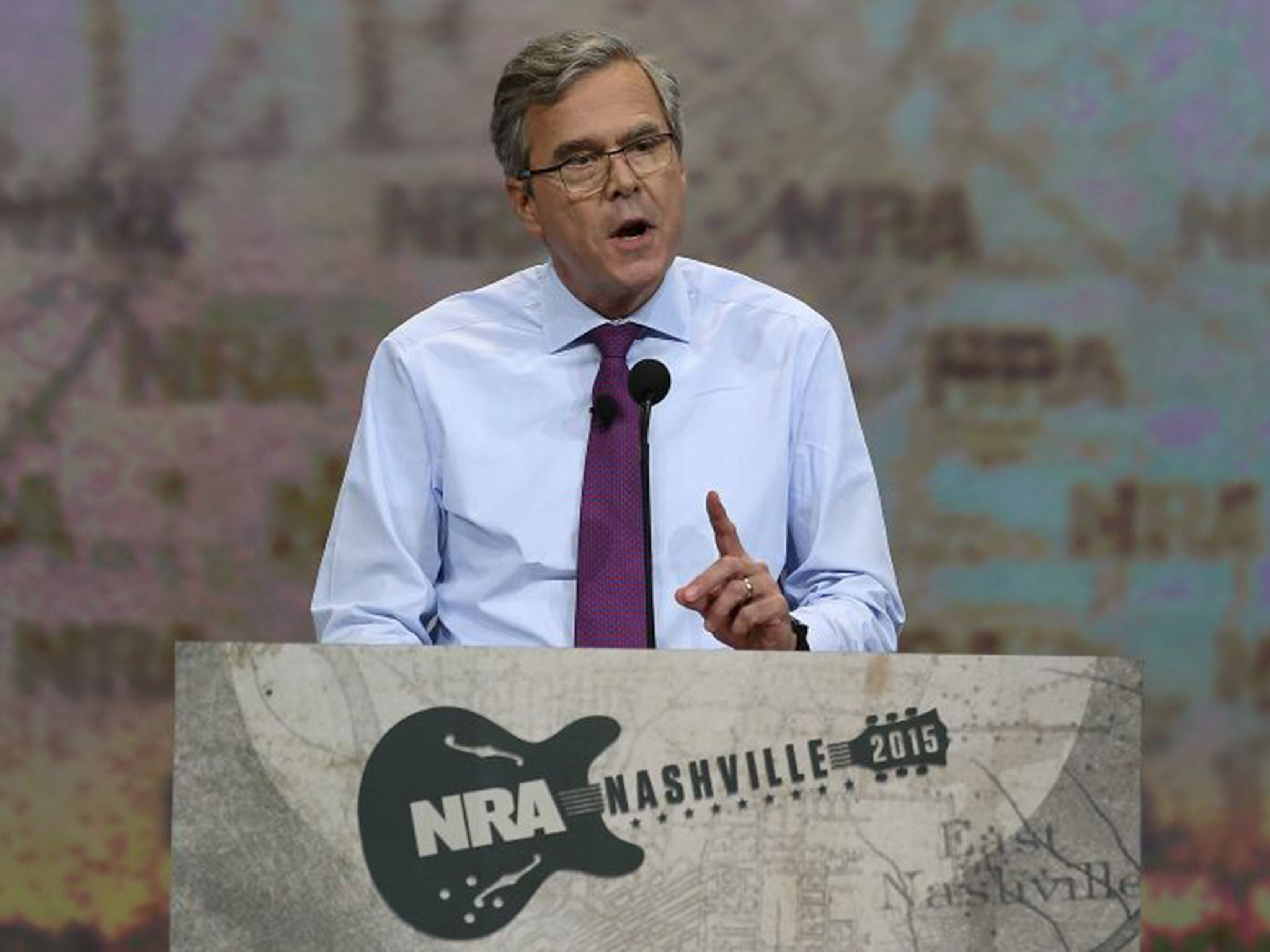
That, though, is only the start of it. Jeb Bush, bidding to add 45 to the 41 and 43 that already are his family’s numbers on the rollcall of United States presidents, will soon enter the race. So will Scott Walker, Wisconsin’s governor. So, probably, will Rick Perry, the former governor of Texas, and New Jersey’s current governor, Chris Christie, as well as Rick Santorum, the former Pennsylvania senator who was runner-up to Mitt Romney last time around, and sundry others.
For Democrats right now, it’s Hillary Clinton (who is due to announce her candidacy soon) or bust. The Republican field, by contrast, is set to be the largest in memory. Some 20 of the party’s prominent figures have expressed interest in a run – indeed, the only one who’s actually ruled himself out is Romney. If they all show up, the podium at the first candidates’ debate on 15 August could be as long as a banqueting table at Buckingham Palace. But it won’t be.
Presidential candidacies can be stillborn, or collapse shortly after birth. The reasons vary: a gaffe, a realisation that the money for a competition whose effective entry fee is $30m (£20.5m) or more just isn’t there, or a simple question: why embark on a White House campaign, arguably the most gruelling political activity known to man, when your chances of achieving victory are next to non-existent. My guess is that when the dust settles in early summer, not more than a dozen – and probably fewer – will be present for the banquet.
But it should be a terrific contest, nonetheless. Today’s Republican party may have moved to the right, even since the days of George W Bush (“43”), not to mention “41”, his father George H W, who once promised a “kinder, gentler” America. These days, such words are anathema for many Republicans. Even Ronald Reagan, that icon of conservatism before whom any candidate must genuflect, would be a moderate in today’s environment. But the party remains a complicated beast.
Essentially, it is composed of three overlapping elements. There’s the relatively moderate party establishment, traditional Republicans, many of them big donors, pragmatists who want to win. There’s the insurrectional Tea Party movement and its smaller libertarian cousin, both distrustful of the establishment and both concerned above all with matters economic. And thirdly, there are the social and religious conservatives – less of a force perhaps than a few years ago, but one with which any contender will still have to reckon.
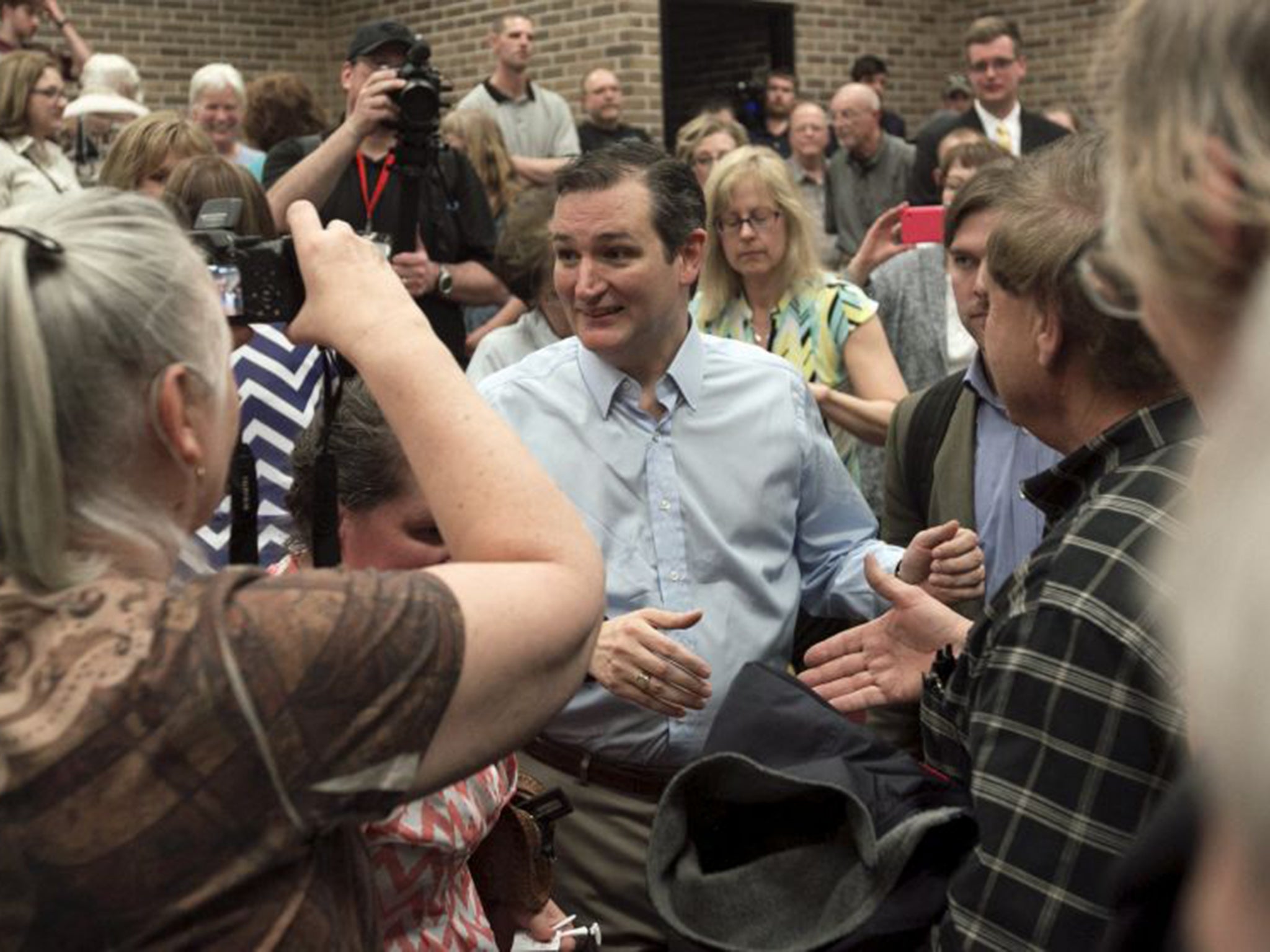
Each of the groups has its standard bearer. But whoever emerges the winner from next year’s caucuses and primaries must appeal – or at least be acceptable – beyond his or her base (the “her” reflects the possibility that Carly Fiorina, one time Hewlett Packard CEO and an unsuccessful 2010 Senate candidate in California, may yet throw her hat in the ring).
So who stands where? The establishment candidate par excellence is, of course, former Florida governor Bush, inheritor of his father and brother’s networks. His prowess at fundraising seems to have knocked the wind out of the brash, in-your-face Christie, who a couple of years ago seemed the Republicans’ heir apparent. But Rubio, Walker or Perry (or even long shot John Kasich, the governor of Ohio and a media favourite) could also lay claim to the establishment mantle.
The most vociferous Tea Party champion is Ted Cruz, unloved by the party establishment for his zeal in forcing unpopular government shutdowns, but who has raised a mightily impressive $31m in the three weeks since he declared. His main rival for this segment of the Republican vote is the “libertarianish” Paul, a ferocious advocate of small government, but dove-ish on foreign policy and liberal on some social issues that he insists are none of the government’s business. But both Rubio, and especially Walker, also have their Tea Party supporters.
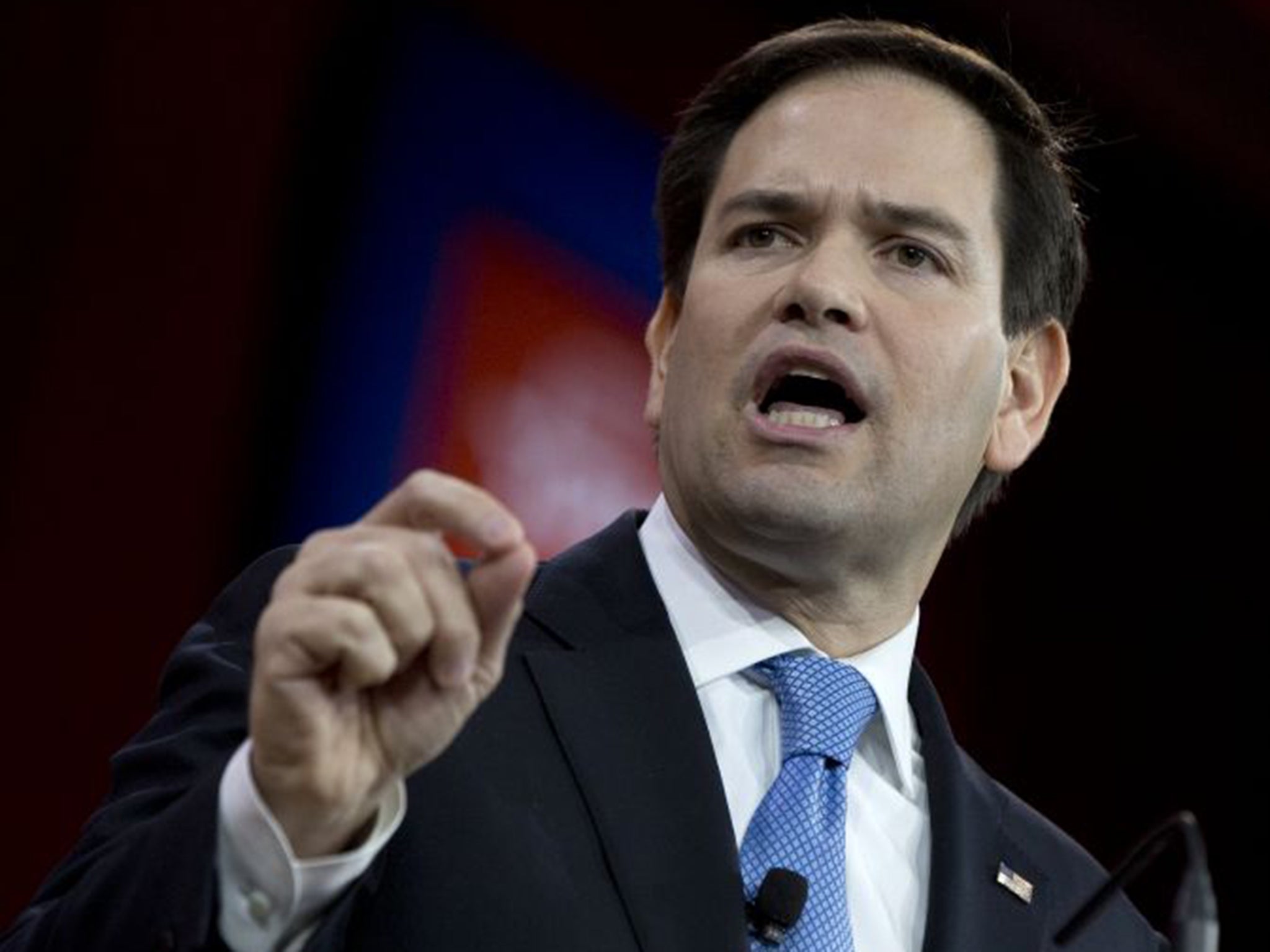
Then there are the social conservatives, the “God, guns and gays” crowd who believe that America is going to hell in a handbasket. This camp carried Santorum to his second place finish in 2012, and made former Arkansas governor Mike Huckabee the runner-up to John McCain in 2008. Both could run this time, as could Ben Carson, a retired neurosurgeon who shot to prominence with a humdinger of a speech at a National Prayer Breakfast a couple of years ago. Cruz, and to a lesser extent, Walker are also courting this group.
The widespread assumption is that the contest, as in 2008 and 2012, will end up as a duel between an establishment candidate and a Tea Party or social conservative. But anything could upend this calculation. If foreign policy dominates the campaign, for instance, this would probably help candidates from Congress, presumed to have a greater understanding of such matters. On the other hand, an election fought as usual over economic and domestic issues would play into the hands of state governors – especially successful ones such as Kasich and Perry – and their claim to be outsiders in poisonously partisan Washington, politicians who must deal with real problems in the real world, on a daily basis.
So where do matters stand at this early moment, almost 10 months before the first votes are cast in the 2016 Iowa caucuses? Average out the polls, and Bush and Walker are the frontrunners, with 15 to 20 per cent support. Next, a few points behind, is a second-tier group of Paul, Cruz, Carson and Rubio, with the rest of the field in low single digits. Christie seems to be fading, and Rubio rising.
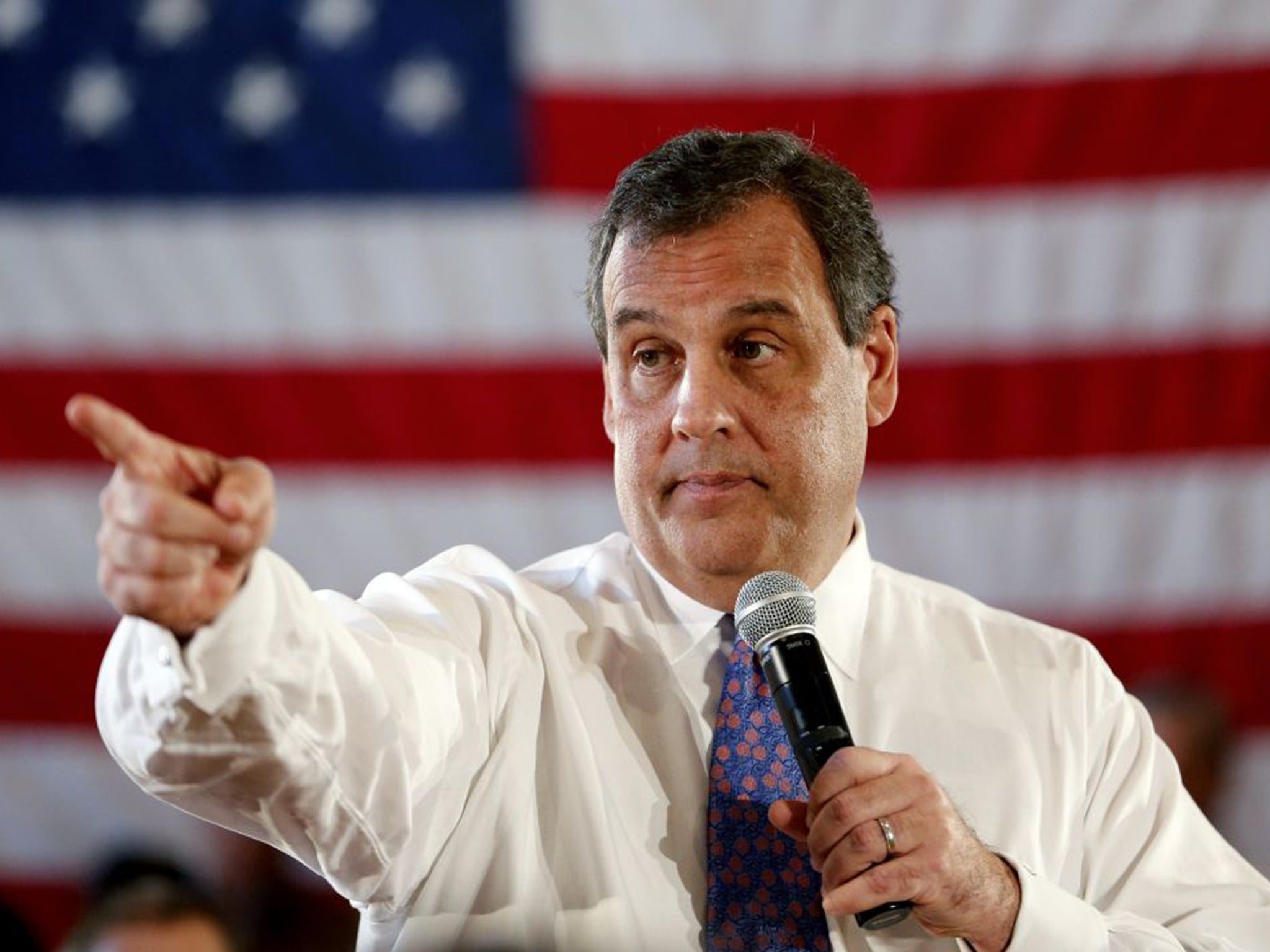
Warning signals however are plentiful – for Bush in particular. He may be winning the money race, and his fluency in Spanish, and Hispanic family connections would be a huge help with Latino voters, usually overwhelmingly Democratic, in a general election. But his public appearances so far have been lacklustre and uninspiring, and he is little trusted by the Tea Party and social conservatives.
Then there is the Bush name, and the bad memories of his brother’s presidency. The biggest problem though will be to avoid being pulled too far to the right in the primaries, as was Romney, also the establishment candidate, in 2012.
The surprise of the campaign so far has been Scott Walker. Forget his foreign policy inexperience: what matters to GOP voters is his ability to win three straight elections in the Democratic state of Wisconsin, and his rout of local trade unions. A bad gaffe or a scandal could wreck his candidacy, as they could anyone’s. For the moment though, he’s flourishing, with a broader cross-party appeal than any of his rivals.
As for the others, Cruz and Paul will battle it out to be the last true conservative standing. Christie hopes that his current round of townhall meetings will revive his fortunes. Rubio is gambling that his youthful appeal will catch the public imagination and propel him to victory over his one-time mentor Bush, just as Obama prevailed over Hillary Clinton in 2008. Huckabee, Carson, Santorum, Perry and the rest will probably be little more than spoilers. But fasten your seatbelts; it could be a wild ride.
Join our commenting forum
Join thought-provoking conversations, follow other Independent readers and see their replies
Comments